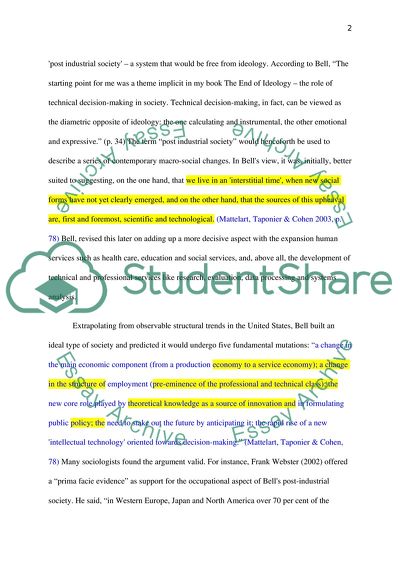Cite this document
(Is Post-industrial Society the Same Thing as Information Society Essay, n.d.)
Is Post-industrial Society the Same Thing as Information Society Essay. Retrieved from https://studentshare.org/information-technology/1717095-is-post-industrial-society-the-same-thing-as-information-society-to-what-extent-is-information-society-really-post-industrial-in-the-uk-and-globally
Is Post-industrial Society the Same Thing as Information Society Essay. Retrieved from https://studentshare.org/information-technology/1717095-is-post-industrial-society-the-same-thing-as-information-society-to-what-extent-is-information-society-really-post-industrial-in-the-uk-and-globally
(Is Post-Industrial Society the Same Thing As Information Society Essay)
Is Post-Industrial Society the Same Thing As Information Society Essay. https://studentshare.org/information-technology/1717095-is-post-industrial-society-the-same-thing-as-information-society-to-what-extent-is-information-society-really-post-industrial-in-the-uk-and-globally.
Is Post-Industrial Society the Same Thing As Information Society Essay. https://studentshare.org/information-technology/1717095-is-post-industrial-society-the-same-thing-as-information-society-to-what-extent-is-information-society-really-post-industrial-in-the-uk-and-globally.
“Is Post-Industrial Society the Same Thing As Information Society Essay”. https://studentshare.org/information-technology/1717095-is-post-industrial-society-the-same-thing-as-information-society-to-what-extent-is-information-society-really-post-industrial-in-the-uk-and-globally.


